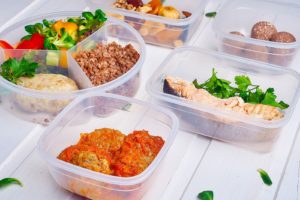
At the Dentist Epping we’re very aware that sometimes it can be very difficult for you to know what everyday, commercial food products you can give your children to eat. Which ones will be nutritious and safe for their teeth – and the rest of their bodies?
After all you want to do the best for your children, but it’s very difficult to know who to believe. There are so many claims in the marketplace about what is healthy, and you’d like to trust a food item which claims to be “natural.”
Let’s see what the Australian Dental Association says about some commonly available products, so you have some reputable guidelines, ones that your Dentist Epping will confirm too.
• A small packet of potato chips should be OK, you’d think. However, once they’ve been chewed, they become very soggy and stick to your children’s teeth and the surprising amount of sugar in them will be able to get to work in damaging their teeth.
• A little container of dried fruit should be OK you’d think – it is fruit after all! However, since the moisture has been removed in the drying process, the fruit has become a mix of concentrated sugar and fibre. When chewed it sticks to your children’s teeth where it can get to work damaging their teeth.
• Museli bars are full of good things like grains and nuts and fruits – but they mostly held together with sugar too! So, once your child chews on them, they’ll stick in the grooves between your child’s teeth where they can damage their teeth.
• You might be attracted to low-fat yoghurt for its dairy content, its live culture content for gut health and low-fat content – but many low-fat yoghurts have sugar added to them to compensate for the lower fat content! So, you’ll need to read the labels carefully for the sugar content! Or add fruit yourself to natural yoghurt.
Perhaps these common products should not be used every day after all! Perhaps they should be consumed only when your children can rinse their mouths out with water after eating them – or brush their teeth, as part of the daily teeth brushing program that we at the Dentist Epping recommend.

These days the shops are awash with options for adults to drink that a couple of generations ago were either not available, or had only limited reach into the community. You may wonder how we at the Dentist Epping would view their effect on your teeth and oral health in general.
Thankfully everyone is much more aware these days of the healthy benefits of drinking water for proper hydration. It is not good at all for our bodies (including mouths and teeth), or for our brains to be dehydrated, as they cannot work optimally for us then.
On cue, bottled water became easily available! Apart from all the plastic and the cost involved in meeting our convenience, tap water is preferable we at the Dentist Epping think.
Ordinary old tap-water you query? Yes, ordinary old tap water as it contains fluoride, which will help protect your teeth against tooth decay by strengthening the enamel layer on your teeth. When you’re at home straight from the tap is easiest, and when you’re out from a re-usable water bottle you’ve filled at home is easy.
Wine is another drink that is so much more easily available these days. If you find the taste of wine very attractive, please take care, so you can look after your oral health at the same time too.
Alcohol is a food that dehydrate us – so be careful to drink plenty of water at the same time. Then your mouth won’t become dry and lose its normal amount of protective saliva that you require for counteracting tooth decay.
White and sparkling wines contain acid which can weaken the enamel coating on your teeth. The acid in red wine can also make your teeth more liable to curry, coffee and tea stains.
People who consume a lot of alcohol have a greater risk of oral cancer, so the Australian Dental Association and we at the Dentist Epping both plea with you to take this warning to heart.
Soft drinks have been around for decades – but the so-called healthier, diet soft drinks are relatively new. These drinks may have less sugar in them, but they still have a high acid content, which dangerously softens tooth enamel, and exposes the tooth layer beneath. That can be very painful, and it also causes cavities in your teeth.
At the Dentist Epping we suggest that afterwards you rinse your mouth out with water to get rid of the acid, instead of brushing your teeth (which is not good for the softened enamel). Sipping the drink through a straw will help keep it away from your teeth too.
So, there are some new ways of thinking about how you consume water, soft drinks and alcohol! Your teeth and oral health will thank you for it.